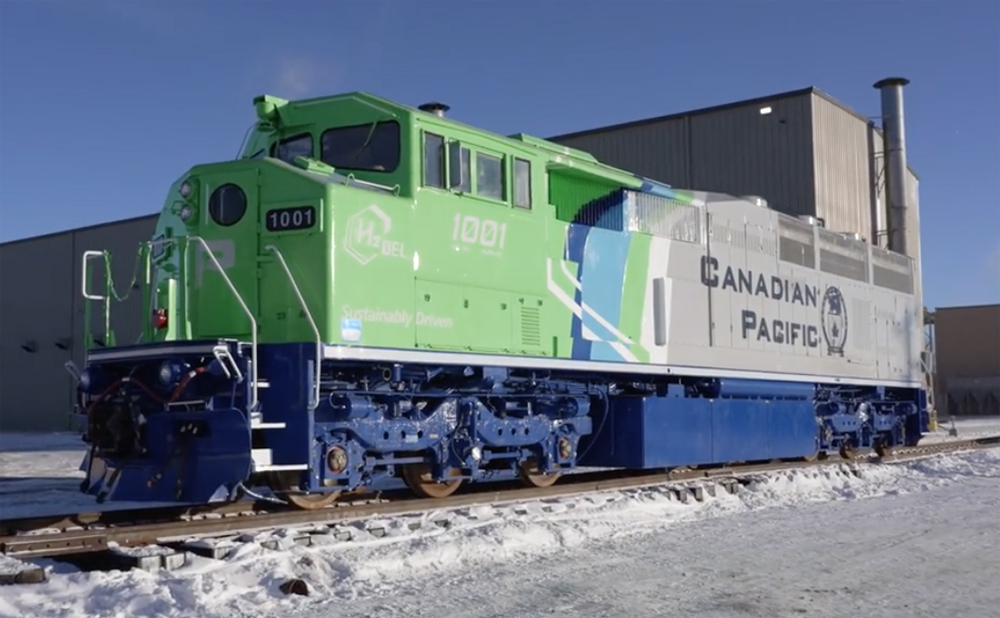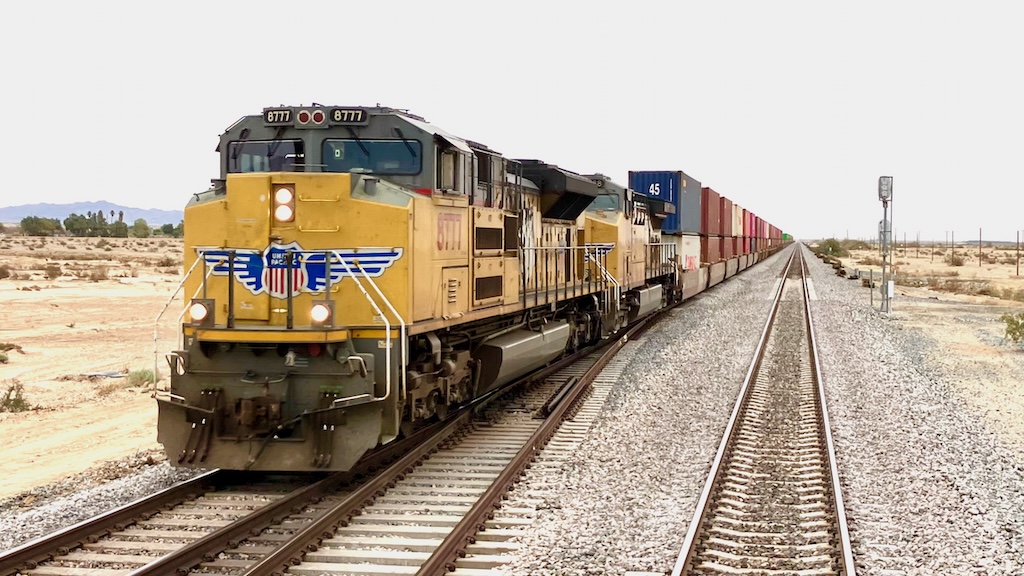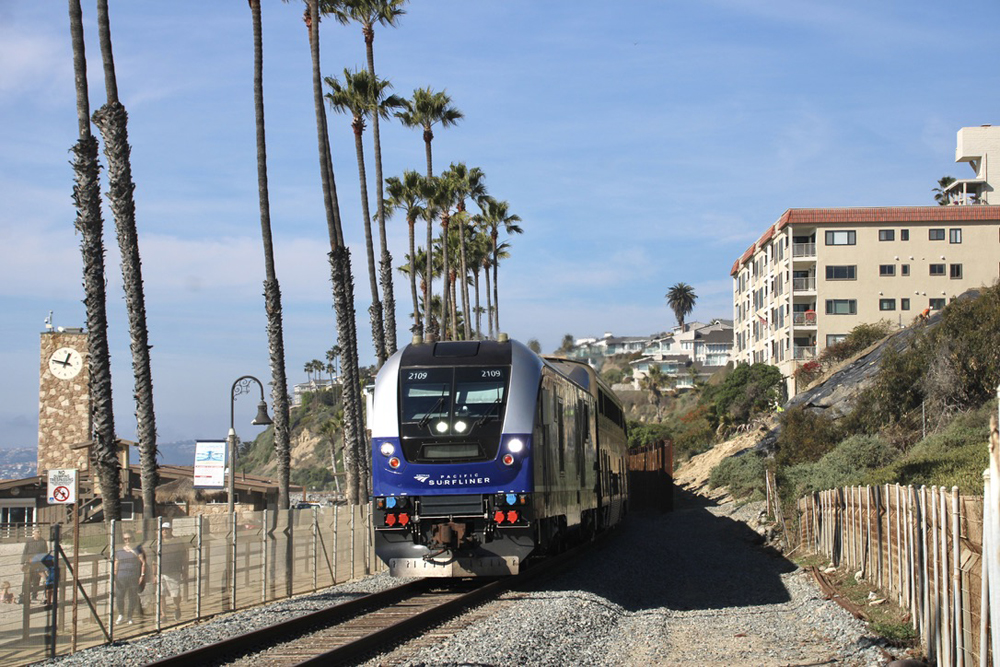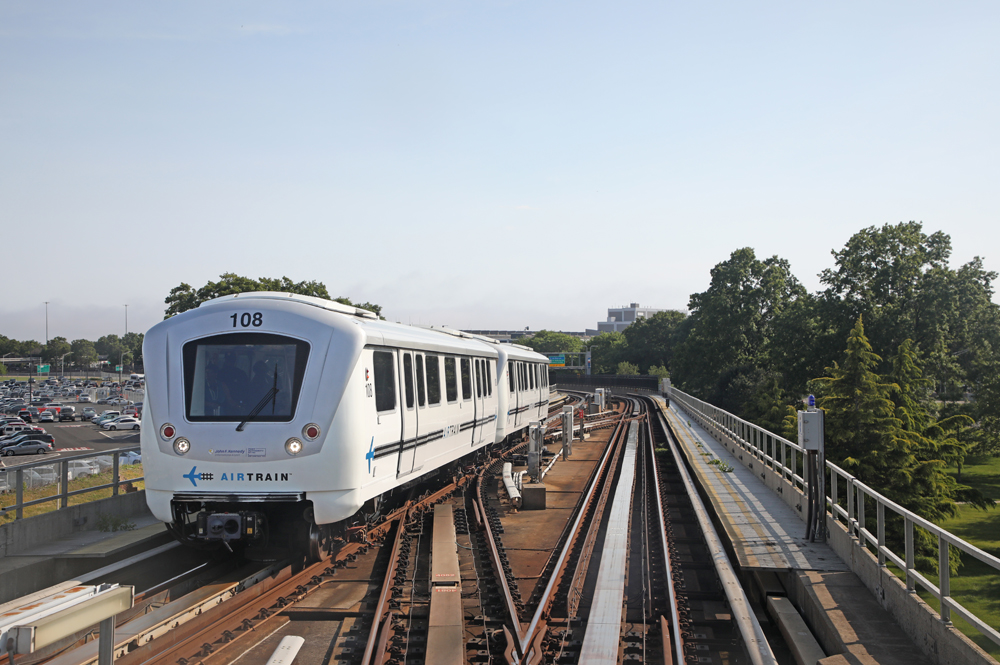
CALGARY, Alberta — CPKC and metallurgical coal producer Teck Resources have reached a new multi-year contract that includes a first-of-its-kind pilot program that will use CPKC’s home-built hydrogen fuel-cell locomotives in coal train service.
The pilot program, which will be jointly developed by CPKC and Teck, will begin next year, the companies announced today. “In support of building green transportation corridors and as a shared commitment to sustainability, CPKC and Teck intend to collaboratively develop a unique pilot program that integrates the use of CPKC’s hydrogen locomotives into Teck’s steelmaking coal supply chain. It is anticipated that this effort will reduce greenhouse gas emissions, with testing commencing in early 2024,” the companies said.
CPKC and Teck declined to provide additional information, including how many locomotives will be involved, whether fuel tenders will be required, whether the hydrogen-powered units will be paired with conventional locomotives, or whether the pilot will involve the construction of fueling facilities.
“This collaboration with CPKC to pioneer hydrogen locomotive technology supports our climate action strategy and our objective of achieving net zero by 2050,” Teck CEO Jonathan Price said in a statement. “The agreement complements our Neptune Terminals investment and other secured West Coast port capacity to support the efficient movement of our high-quality Canadian steelmaking coal to our global customers.”
The contract builds on existing service for the handling of coal from Teck’s four British Columbia coal mines to Vancouver for export to steelmakers in Asia.
“We are pleased to have reached this agreement continuing our long history of success providing safe and efficient transportation solutions to Teck,” CPKC CEO Keith Creel said in a statement. “CPKC is proud to work with organizations such as Teck that share our passion to be leaders for a sustainable future as we look to take the next step in the development of our innovative hydrogen locomotive program.”
CP’s first hydrogen locomotive, converted SD40-2F No. 1001, is dubbed H2 0EL for “hydrogen zero-emissions locomotive.” It made its first revenue run in local service in Calgary in October 2022. The locomotive uses hydrogen fuel cells and batteries to power its electric traction motors.
CP is using solar power to produce hydrogen at its Calgary headquarters. It also has a separate hydrogen production facility in Edmonton. CP is partnering with the Alberta provincial government to build a DC-traction version as well as another AC-traction unit.
CP planned to have the three locomotives switching customers in Calgary, Edmonton, and Vancouver by the end of this year.
Creel told the RailTrends conference in November 2022 that “the next step is scalability,” through partnering with a customer that can build enough road locomotives to prove the technology on the rugged CP main line in the Canadian Rockies west of Calgary.
“It’s the perfect test bed. If you can operate there – heavy haul, cold temperatures, the most challenging operational conditions I’ve ever experienced in my career … it will work anywhere,” Creel said at the time.
The new CPKC-Teck contract, which runs through 2026, does not affect Teck’s contract with Canadian National for hauling coal to the Neptune Terminal in Vancouver as well as to the port of Prince Rupert, B.C. CN won that contract from CP in 2019 and began handling Teck coal west of the CP-CN interchange at Kamloops, B.C.
“This new agreement with CPKC does not impact and is not related to our agreement with CN. The CP and CN agreements cover different routing,” Teck spokesman Chris Stannell says. “Teck will continue to use both CN and CPKC in the transport of products from our steelmaking coal operations to West Coast ports.”














And only closer to net-zero if CPKC gets its hydrogen from electrolysis rather than from hydrocarbon reforming.
Better with hydrogen than huge batteries with materials to make them coming from China. The ( “Supply Chain”)
However, no more ironic than when the RRs switched from coal burning steam locomotives to diesel to haul coal trains.
Seems like a fine bit of irony here: spiffy clean hydrogen hauling nasty old coal. Personally, I’m still in favor of fossil fuels, possibly because I’m a fossil myself.
I presume everybody involved has evaluated the dangers of hydrogen. Sure, it burns “clean,” but it also burns nearly invisibly. If there’s ever a mishap and a fire starts, train crews and first responders could be in for a nasty surprise. Hindenburg on rails, anyone?
Irony was my first thought, too.
It is pretty ironic, net-zero carbon emission locomotives hauling big carbon-emission coal. Yet, if hydrogen fuel cells work here, it will be proof-positive for replacing diesel-electric with hydrogen-electric motive power in North America.
Please realize that CP is hauling mainly metallurgical coal used in steelmaking, not thermal coal burn in powerplants.